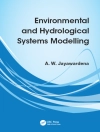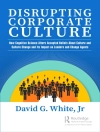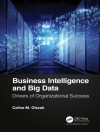Social assessment for projects in China is an important emerging field. This collection of essays — from authors whose formative work has influenced the policies that shape practice in development-affected communities — locates recent Chinese experience of the development of social assessment practices (including in displacement and resettlement) in a historical and comparative perspective. Contributors — social scientists employed by international development banks, national government agencies, and sub-contracting groups — examine projects from a practitioner’s perspective. Real-life experiences are presented as case-specific praxis, theoretically informed insight, and pragmatic lessons-learned, grounded in the history of this field of development practice. They reflect on work where economic determinism reigns supreme, yet project failure or success often hinges upon sociopolitical and cultural factors.
Mục lục
Figures and Tables
Preface and Acknowledgements
Abbreviations
Introduction: Making Economic Growth Socially Sustainable?
Susanna Price
PART i: ENGAGED SOCIAL RESEARCH IN SHIFTING DEVELOPMENT NARRATIVES
Introduction to Part One
Susanna Price
Chapter 1. Landmarks in Development: The Introduction of Social Analysis
Michael M. Cernea
Chapter 2. Social Science and the Mining Sector: Contemporary Roles and Dilemmas for Engagement
Deanna Kemp and John R. Owen
Chapter 3. Practicing Social Development: Navigating Local Contexts to Benefit Local Communities
Aaron Kyle Dennis and Gregory Eliyu Guldin
Chapter 4. Striving for Good Practice: Unpacking Aus AID’s approach to Community Development
Kathryn Robinson and Andrew Mc William
Chapter 5. Seeds of Life: Social Research for Improved Farmer Yields in East Timor
Andrew Mc William, Modesto Lopes, Diana Glazebrook, Marcelino de Jesus da Costa, and Anita Ximenes
PART II: APPLYING SOCIOLOGICAL KNOWLEDGE IN CHINA
Introduction to Part Two
Susanna Price
Chapter 6. Social Assessment in the People’s Republic of China: Progress and Application in Domestic Development Projects
Li Kaimeng
Chapter 7. Turning Risks into Opportunities? Social Assessment as Governmental Technologies
Bettina Gransow (柯兰君)
Chapter 8. Participatory Monitoring of Development Projects in China
David Arthur and Jianliang Xiao (Elisa)
Chapter 9. How Social Assessment Could Improve Conservation Policy and Projects: Cases from Pastoral Management in China
Wang Xiaoyi
Chapter 10. Improving Social Impact Assessment and Participatory Planning to Identify and Manage Involuntary Resettlement Risks in the People’s Republic of China
Scott G. Ferguson and Wenlong Zhu
Chapter 11. Stakeholder Participation in Rural Land Acquisition in China: A Case Study of the Resettlement Decision-making Process
Yu Qingnian and Shi Guoqing
Conclusion
Susanna Price
Notes on Contributors
Glossary
Index
Giới thiệu về tác giả
Kathryn Robinson is Professor in Anthropology at the Australian National University, in the School of Culture, History & Language, College of Asia and the Pacific; and is a Fellow of the Academy of Social Sciences in Australia. She specializes in Anthropology, Economic Geography, International Relations, and Gender Specific Studies. Publications include Gender Islam and Democracy in Indonesia (2009) and Asian and Pacific Cosmopolitans: Self and Subject in Motion (2007). She also works as a development consultant in Southeast Asia and the Pacific.












